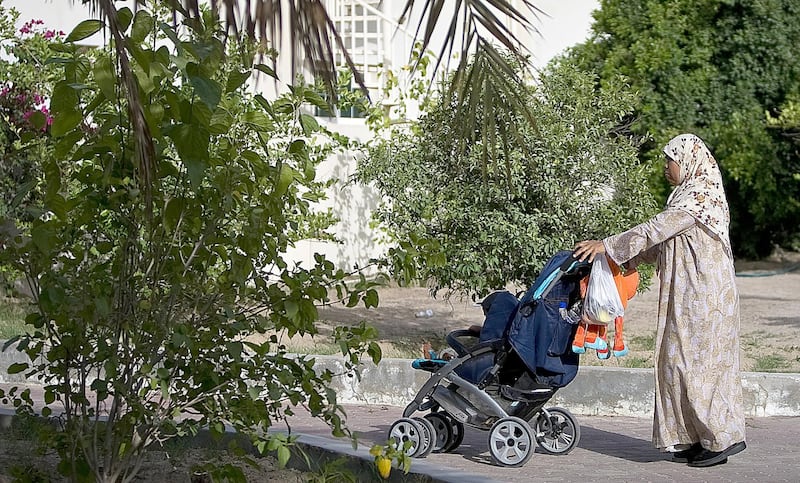A new cashless payment system to protect the wage payment for domestic workers has been launched by an Abu Dhabi bank.
The electronic wage transfer system by First Abu Dhabi Bank and the Ministry of Human Resources and Emiratisation allows employers to pay staff salaries directly on to a debit card that can be used to buy phone credit, transfer money locally and remit money overseas.
The system will help address non-payment or delayed wages, a common problem faced by domestic staff in the UAE.
"We are delighted to work alongside the Ministry of Human Resources and Emiratisation to develop a unified payment solution that will benefit a wider segment of society,” said Ramana Kumar, head of digital Banking at FAB. “Given our extensive expertise in the payments industry, the solution will enable domestic workers to receive monthly salaries in an easy, unified and secure manner.”
About 39 per cent of adults in the UAE do not have a bank account, according to a survey by the Central Bank of the UAE. Of these, 15 per cent lack access to formal financial services, such as the ability to remit or transfer money to relatives.
Most low income workers, including some domestic staff, are already paid electronically through the Wages Protection System, a salary transfer system set up in 2009 by the Ministry of Labour to track salary transactions. It allows the government to monitor late payments and take action against defaulting companies.
But many domestic staff are still paid in cash. Recruitment agents told The National it is at the discretion of the employer and staff whether wages are paid in cash or electronically.
Recruitment agents welcomed the system, noting that the electronic transfer protects the rights of both employer and employee.
“Electronic is better,” an agent at a Tadbeer recruitment centre in Dubai said. “Then nobody can play with you and say they did not get paid.”
The government has rolled out a series of laws to protect vulnerable domestic staff in recent years.
In January, it raised the minimum wage for people who wanted to sponsor domestic staff from Dh6,000 to Dh25,000.
In 2018, higher recruitment fees were introduced and in 2017, the President Sheikh Khalifa signed a law that guaranteed domestic staff at least 12 hours off duty a day, paid sick leave and one day off each week.
According to the 2017 UAE Nanny Salary Survey, from Rise, a wealth platform for low-income workers, 60 per cent of nannies earn less than Dh2,000 working as a domestic helper, while 40 per cent earn Dh2,000 or more, and just one in ten earn more than Dh3,000.







